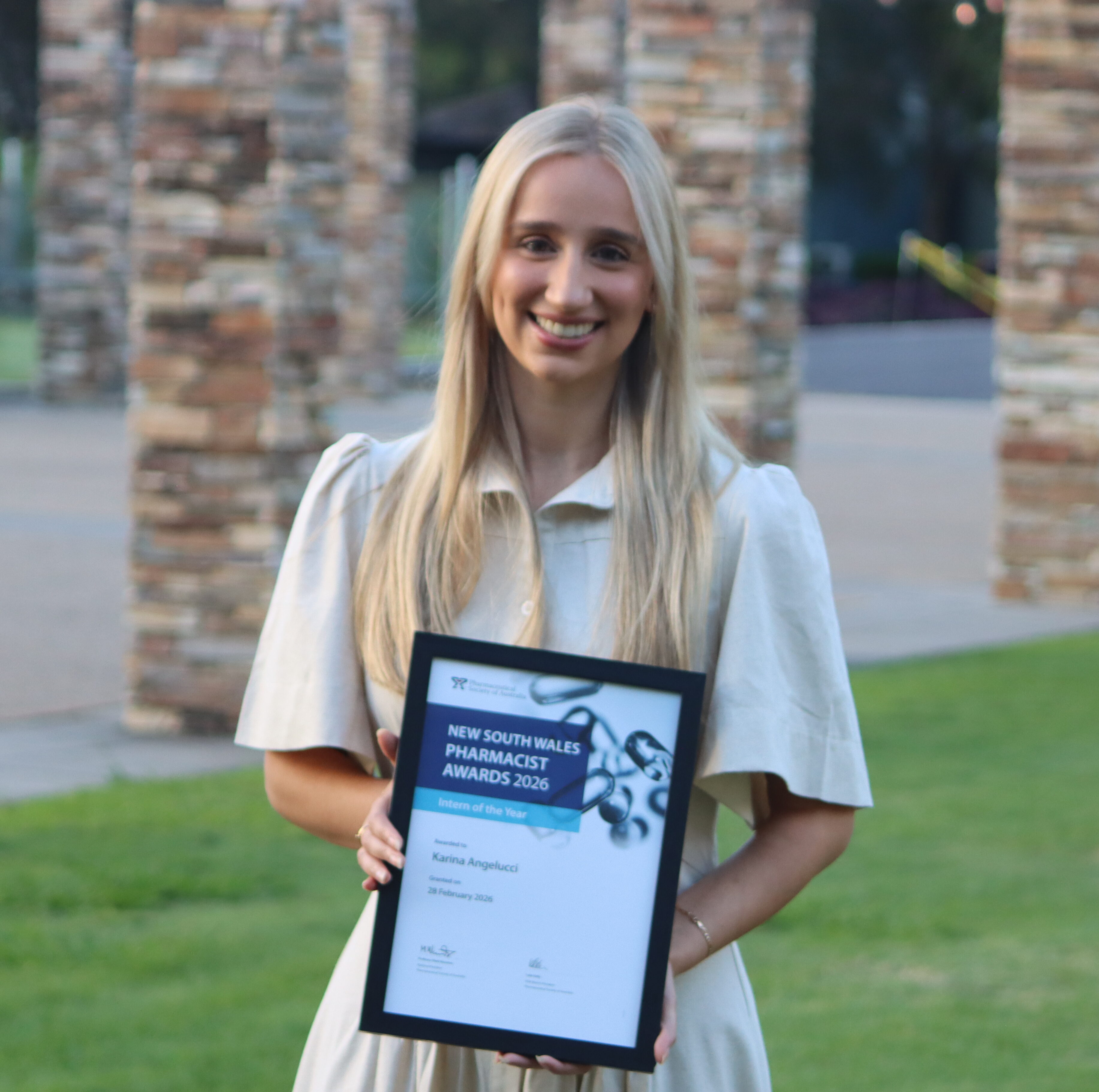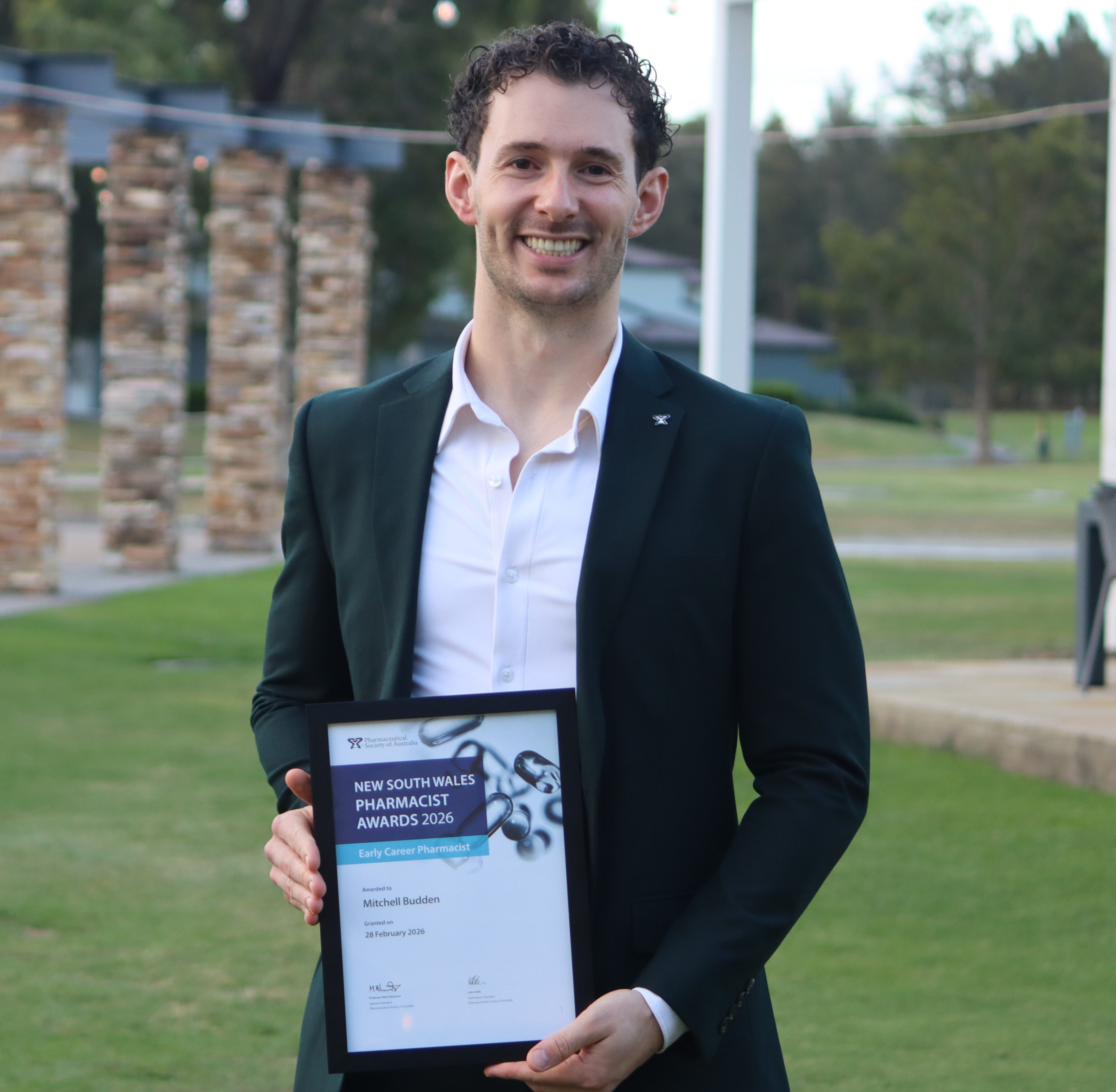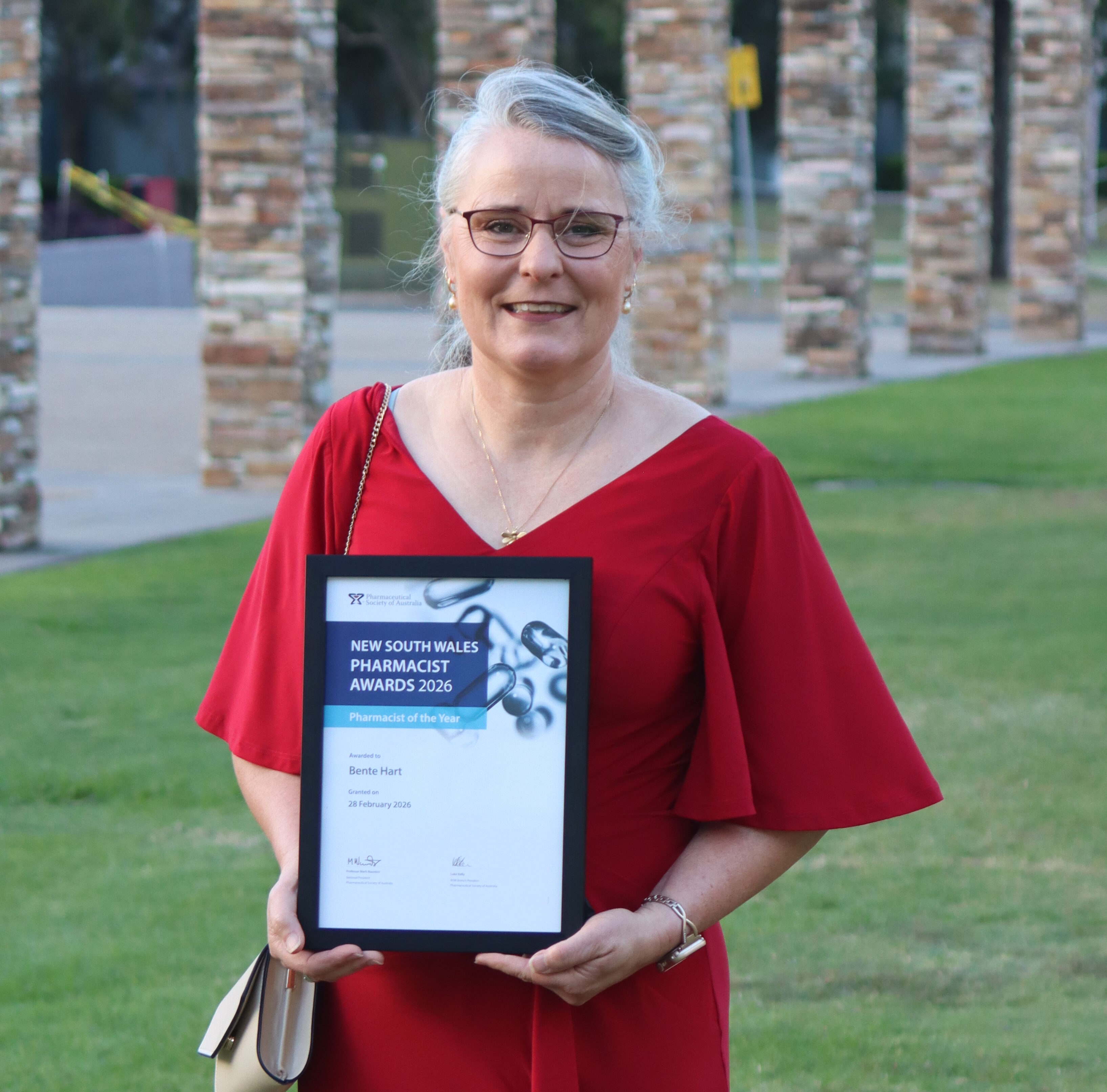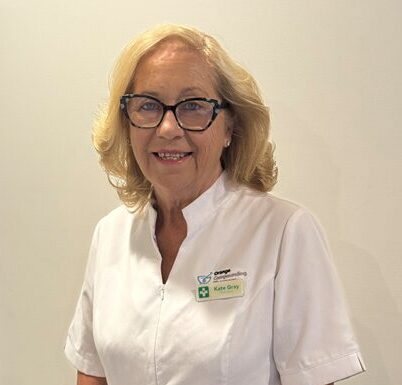PSA NSW Pharmacist Awards winners announced
2 March 2026
The Pharmaceutical Society of Australia (PSA) has announced the winners of the PSA New South Wales Pharmacist Awards, recognising outstanding pharmacists who have demonstrated excellence in their practice and dedication to improving healthcare outcomes for their communities.
The 2026 award recipients are:
- Lifetime Achievement Award – Kate Gray MPS
- Pharmacist of the Year – Bente Hart MPS
- Early Career Pharmacist of the Year – Mitchell Budden MPS
- Intern of the Year – Karina Angelucci MPS
Credentialed pharmacist from Braidwood, NSW Pharmacist of the Year Bente Hart, an exceptional pharmacist whose leadership, proactive problem-solving, and deep commitment to rural and vulnerable populations has made a lasting impact on both the profession and the community she serves.
Bente has made contributions across Multipurpose Services (MPS) and Residential Aged Care Homes (RACH), supporting medication audits, National Antimicrobial Prescribing Surveys (NAPS), and addressing medication-related quality improvement issues. Her work has strengthened clinical governance and patient safety in rural facilities where such initiatives can be challenging to implement.
She delivers targeted education to nursing, medical, and allied health staff to improve medication safety and quality use of medicines, and she has supported pharmacists to transition to updated credentialing requirements for Medication Management Reviews (MMRs), helping sustain high-quality rural pharmacy services. Bente regularly volunteers her time at local markets, providing health checks, medication advice, and health education to community members.
PSA fifty-year Life Member from Orange, Kate Gray, has been awarded the PSA NSW Lifetime Achievement Award. For over five decades Kate has been committed to advancing pharmacy practice through leadership, mentorship, and community service. Her enduring contributions span ownership, governance, education, and advocacy, making her a role model and champion for the profession.
Kate Gray earned her Bachelor of Pharmacy and became a registered pharmacist in 1975. She is a proprietor of Peter Smith TerryWhite Chemmart and Orange Compounding Pharmacy. In 2025, Kate received the Pharmacy Guild Life Member Award, marking 44 years of Guild membership. She currently serves on the NSW Pharmacy Council and is in her second elected term.
NSW Early Career Pharmacist of the Year Mitchell Budden is completing a PhD at The University of Newcastle focused on pharmacist prescribing for uncomplicated urinary tract infections (UTIs) in NSW and ACT, evaluating safety and efficacy outcomes to inform policy and practice. His research has already contributed to shaping extended scope models that improve patient access and reduce system pressures.
Mitchell has eight years’ experience in community pharmacies in regional NSW, which gives him a deep understanding of the realities of frontline pharmacy practice. His clinical expertise and patient-centred approach have informed his leadership in research and policy, ensuring that innovations are practical, sustainable, and responsive to community needs.
NSW Intern of the Year Karina Angelucci has established herself early in her career as a leader in professional services focused on patient care and medicine safety. During her intern year in Balmain, she restructured her pharmacy’s DAA service, streamlined processes and grown the patient base by championing the benefits of DAA’s to local doctors, carers and patients.
Karina has championed vaccination in a community known for not strongly embracing vaccination services. She has performed over 1,000 influenza vaccines across her intern year and initiated an outreach vaccination service for local school staff. She also developed a travel health program and a point-of-care testing program in the pharmacy.
Speaking last night in the Hunter Valley at the NSW Pharmacist Awards ceremony, PSA NSW President Luke Kelly congratulated each of the award recipients, highlighting their dedication to the pharmacy profession and improving patient care:
“Each of these pharmacists has demonstrated excellence in their practice. Their work drives forward patient care locally, across New South Wales, and beyond.
“With the health needs of our community continuing to grow, it’s important to celebrate innovation, dedication and passion which takes health care to the next level,” Mr Kelly said.
“I congratulate all of the award recipiences and thank them for their contribution to the profession and to their local communities.”
Awardees available for interview.
High resolution images of awardees are available by contacting media@psa.org.au

Karina Angelucci MPS
NSW Intern Pharmacist of the Year

Mitchell Budden MPS
NSW Early Career Pharmacist of the Year

Bente Hart MPS
NSW Pharmacist of the Year

Kate Gray MPS
NSW Lifetime Achievement Award

